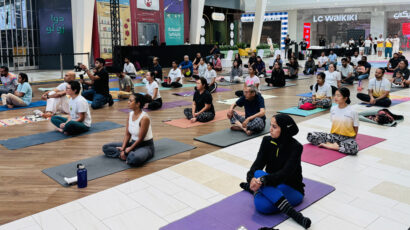Yoga and Meditation for Dementia

A research study that was published in the Journal of Alzheimer’s Disease has reported that a 3-month yoga and meditation course can have considerable positive effect on individuals by reducing the risk of the mild cognitive impairment that leads to Alzheimer’s and other forms of dementia. The study that was conducted by the researchers of the Department of Psychiatry University of California-Los Angeles (UCLA), was conducted under the leadership of Dr. Helen Lavretsky.
Mild cognitive impairment, characterized by deterioration of cognitive function and development of problems related to memory and thinking, though not severe enough in interfering with the independence of an individual in his or her activities, can increase the risk of contracting various forms of Dementia. No medicines have been hitherto discovered which is capable of dealing with MCI, and the usual treatment is a therapy which includes crossword puzzles and other cognitively challenging activities, thereby increasing the cognitive functioning.
The research included 25 participants who were 55 years and older and 14 of them were given Kundalini yoga classes once a week for 12 weeks and Kirthan Kriya meditation for 20 minutes every day. Kundalini is a yoga practice that includes incorporating breathing techniques, meditation and chanting and it also increases awareness. Kirtan Kriya, on the other hand, has more of chanting, hand movements and light visualization. The rest of the 11 participants underwent 1 hour program for memory enhancement which included crossword puzzles and computer games, once a week. The change was measured using functional magnetic resonance imaging (fMRI) and some memory tests. The results indicated greater improvements in Visual-spatial memory for the Yoga practicing group. The results also showed that the group that practiced yoga was lower on anxiety and depression and better in terms of coping skills and stress resilience. The yoga-meditation group demonstrated brain connectivity changes that were statistically significant whereas the other group didn’t.
The study traced back the cause for these improvements to the increased production of BDNF (Brain-derived Neurotrophic Growth Factor) which is responsible for boosting connections between brain cells, as well as maintaining the survival of existing brain cell connections. The increased BDNF was due to the practice of Yoga, thus proving the role of yoga in reducing the risk of Alzheimer’s and other forms of Dementia.















